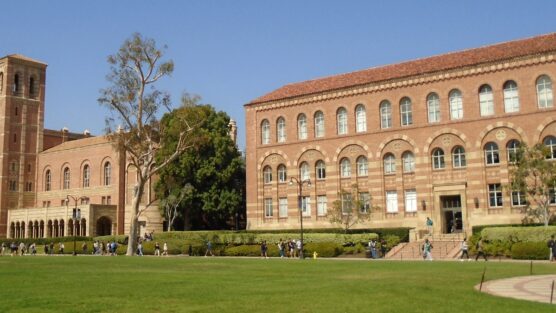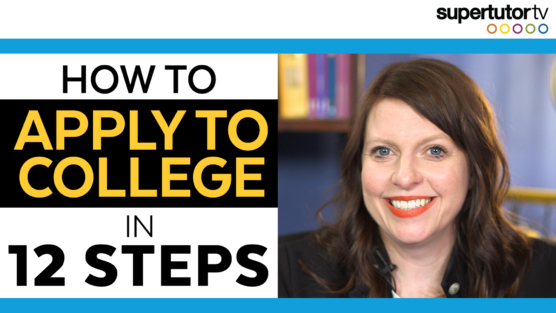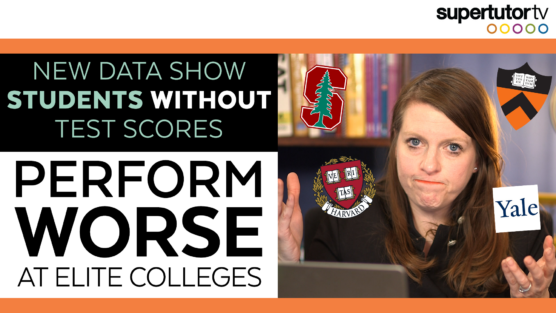Are you applying to college soon or recently applied and are wondering what really goes on behind the closed doors of admissions offices? In this blog we’re going to talk about five random reasons colleges may reject you.
Reason 1 – You Don’t Fit the Part
What many students don’t realize is that college admission offices are like producers casting for a play: when you have different roles, you’re going to cast different people in those roles according to what those people are like. Not every actor and actress can play every part in a play or movie. As many of you know, a lot of colleges and universities use a process of admissions called holistic admissions, i.e., colleges consider more factors than GPA and test scores, making the process totally subjective. Certainly all schools have some sort of ethos that they want to promote, as in, a common value system they hope all admits espouse. But moreover, colleges are looking to build a well-rounded student body, to create a “mosaic” of diverse students. If they’ve already accepted people who fill out certain niches and you fill that same niche, you might get rejected because your app was read after someone else’s. Other factors that can influence your admission include the state that you are from, the high school you attended, and/or your economic background. If you know you had the grades and scores and still get rejected, don’t take it too personally because it may just be that you don’t get in because they’re trying to create this “mosaic” of persons and you just aren’t fitting into their idea of what that mosaic should look like. It’s not that your scores aren’t good, that you didn’t work hard enough, or that you are not an amazing person.
Reason 2 – The Whims of the Application Reader
It’s kind of unnerving that your entire admissions decision in many ways comes down to the opinion of one human being. At very competitive universities, it’s gotten to the point where most employ a single application reader for most applicants. True, some universities tackle applications in teams of two (or more) and even those with individual readers typically have a committee process where individual readers gather and decide who gets admitted and who doesn’t. In any case, much of this decision is going to come down to the random one person who reads your application. We are all human, and because this is this holistic process, whether your essays and you, as a person, resonate with that particular human being can absolutely affect your chances of getting in– such a connection, of course, is in many ways a matter of chance. In the article “Dirty Secrets of College Admissions” from The Daily Beast, one particular college reader admits she had food poisoning one day and rejected a whole slew of students because of her illness. The problem at hand is that there’s way too many qualified candidates at almost every competitive university. They may have six or eight times as many students who are qualified as they have spots and they are left with that difficult decision of choosing the right candidate. Even if your reader loves your application, she might have to go through a committee and make a case for why you deserve the spot and when it comes down to a vote, even her love of your essays may not be enough. Our advice is to apply to multiple schools, especially if you’re applying to competitive schools. And don’t forget to have back up schools!
Check out the Best SAT & ACT Course Ever!
Reason 3 – The College Isn’t Need Blind
What Need Blind Admissions means is that the colleges are not looking at how much money you have or your ability to pay when they decide whether or not to let you in. There are about 100 universities that publicly identify as need blind, but almost 2900 college in the US. You do the math. If you’re an international student, you may very well that the majority of the schools who profess to be need blind are not so in the case of international students. As an international student, your ability to pay is going to be considered as you are considered as a candidate.
Though it’s a nice dream to create colleges that uplift those in poverty and make education the great equalizer, the data for US colleges points to a different story. Money talks. Even at “need blind” schools, awareness of wealth and preference towards wealthy students surfaces in other ways. For instance, colleges and universities often give preference to legacy students because they know that that promotes giving from alumni. Just remember that if you didn’t get in, sometimes there’s things that you can’t do anything about and that doesn’t mean that education isn’t an awesome tool and that you can’t get ahead if you find a way to get an education. Education CAN lift you up to a better place. But the path may be less straightforward if you need financial aid.
Reason 4 – Your Application is Too Good
This does not happen really frequently but it has happened to students. I’ve seen, for example, a student admitted to multiple Ivy League schools but “waitlisted” at the University of Michigan. This might be due the fact that the student maybe didn’t work as hard on that application and his supplemental essay wasn’t as convincing, but inevitably, some schools fighting for rank may try to put off high achieving students (typically by waitlisting them) in order to protect their yield– the percent of students who choose to enroll in a particular college after having been offered admission. This is an important statistic because it contributes to the U.S. News & World Report ranking of every university of the country. If these students really want in, then schools can just waitlist them, and if they really want to attend they’ll write a waitlist appeal letter and then everything works out for everyone, right? Many say top 20-50 schools are going to try and protect their yield, and I do see this tactic emerge at some of them. I also see this happening with some early action programs: amazing students, like the ones I see get into Harvard or MIT, get “deferred” from Michigan early, while students I have who are great targets for Michigan get in. Just because you get waitlisted or deferred by a school, a middle-level or backup school, does not mean you won’t get in elsewhere. Before you freak out, know that this doesn’t happen often. Still, it’s a good reason that you should have at least two safety schools. You should also always be especially careful to show demonstrated interest whenever you’re applying to a school that is a backup or a safety school because no one wants to be your backup or your safety. They want you to want them.
Reason 5 – Someone Else Had an Advocate and You Didn’t
Given the nature of these wildly competitive schools, sometimes what will happen is the students who have more advantages or advocates can get into schools more easily than those who don’t. An advocate could be, for example, a super savvy college counselor from a private school that has connections. Many elite private schools recruit college counselors from top-10 ranked universities as admissions officers. Private school teachers can also be advocates in their recommendation letters, given the small class sizes and proximity of getting to know a student. Still others might have inside relationships with influential people at the school, the university’s board of directors, or deans of admission.
A side note: don’t have your parent be your advocate! College admissions offices do not respond well to overbearing parents. If your parent calls incessantly, that may be a reason to reject you.
True, many of these reasons for rejection may not seem fair but don’t take it personally as the process can be out of your control. Take heart and realize that you are more important than where you go.




